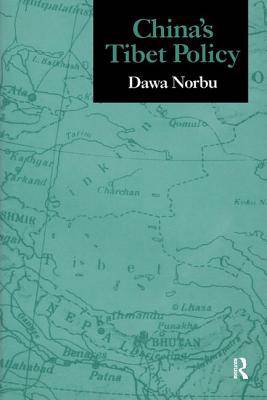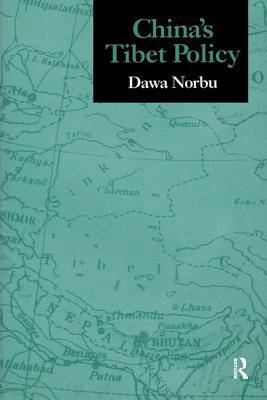
Door een staking bij bpost kan je online bestelling op dit moment iets langer onderweg zijn dan voorzien. Dringend iets nodig? Onze winkels ontvangen jou met open armen!
- Afhalen na 1 uur in een winkel met voorraad
- Gratis thuislevering in België vanaf € 30
- Ruim aanbod met 7 miljoen producten
Door een staking bij bpost kan je online bestelling op dit moment iets langer onderweg zijn dan voorzien. Dringend iets nodig? Onze winkels ontvangen jou met open armen!
- Afhalen na 1 uur in een winkel met voorraad
- Gratis thuislevering in België vanaf € 30
- Ruim aanbod met 7 miljoen producten
Zoeken
Omschrijving
This major study analyses the traditional modes of Sino-Tibetan relations in order to unearth general patterns beyond partisan points of view. It sheds light on contemporary issues in the Sino-Tibetan dialogue, and discerns possible future structures for conflict resolution in occupied Tibet. With its economic reforms, China is changing and will change more in the near future, thereby expanding the scope for freedom and democracy. It is in such a context that several leading Chinese intellectuals have, since the early 1990s, called for a fresh examination of the history of Sino-Tibetan relations in order to determine the actual status of Tibet. This book is a Tibetan's contribution to this great debate. Tibet is often viewed in isolation from other developments in Asia or the West. This book, for the first time, analyses the Tibetan question within the context of international politics, especially the roles of Britain, India, the USA and Russia in paving peaceful ways to conflict resolution in Tibet.
Specificaties
Betrokkenen
- Auteur(s):
- Uitgeverij:
Inhoud
- Aantal bladzijden:
- 484
- Taal:
- Engels
- Reeks:
Eigenschappen
- Productcode (EAN):
- 9780700704743
- Verschijningsdatum:
- 27/09/2001
- Uitvoering:
- Hardcover
- Formaat:
- Genaaid
- Afmetingen:
- 162 mm x 244 mm
- Gewicht:
- 857 g

Alleen bij Standaard Boekhandel
+ 486 punten op je klantenkaart van Standaard Boekhandel
Beoordelingen
We publiceren alleen reviews die voldoen aan de voorwaarden voor reviews. Bekijk onze voorwaarden voor reviews.











